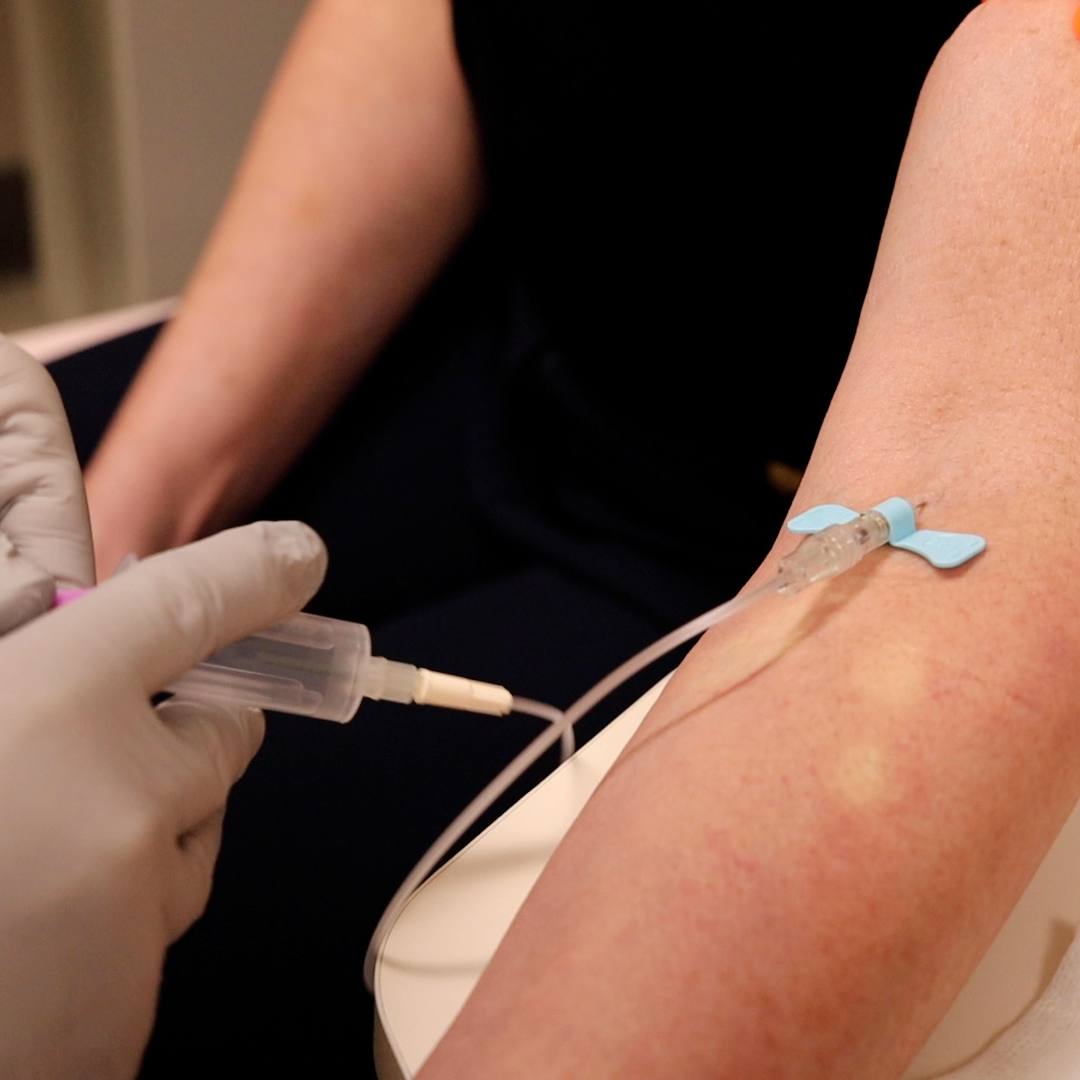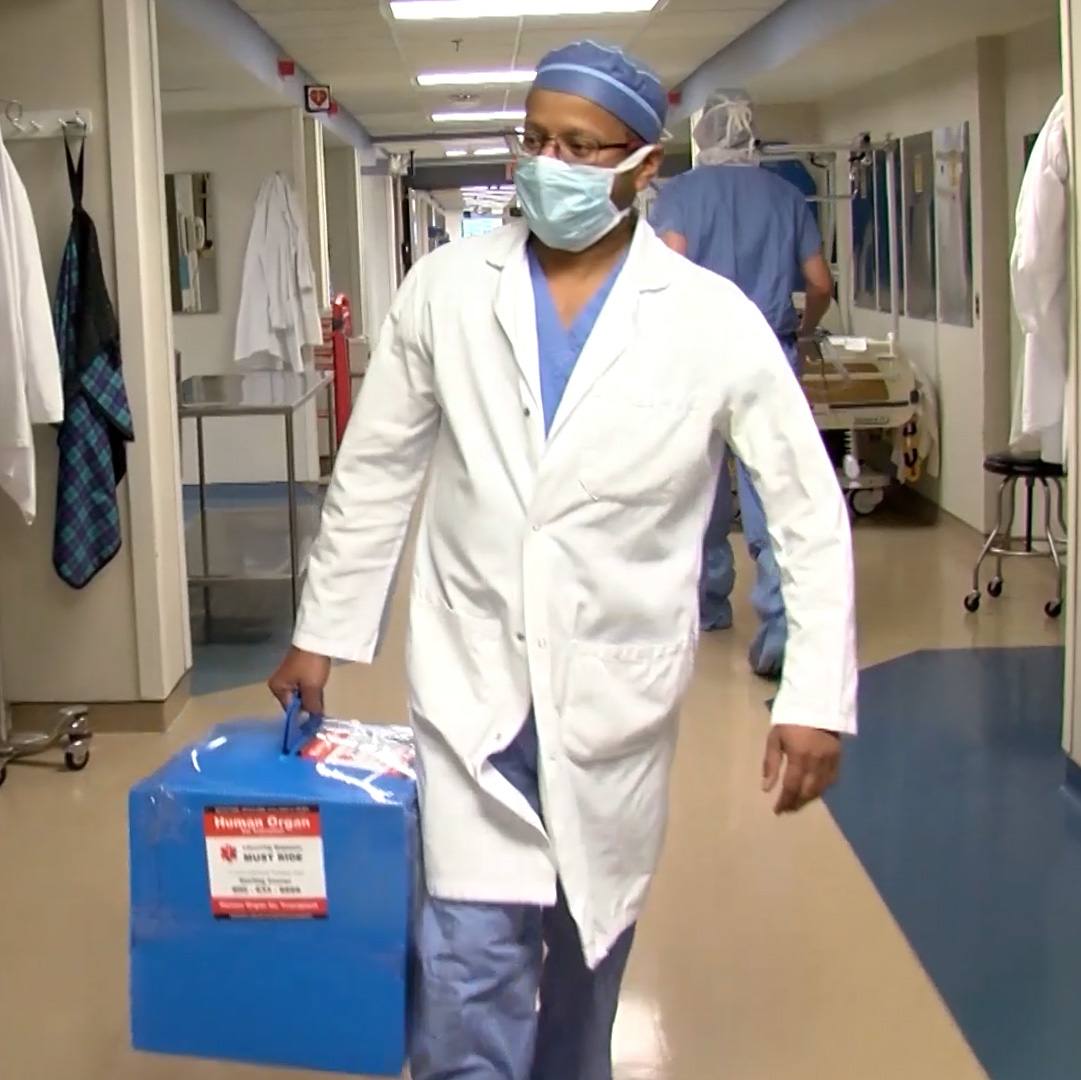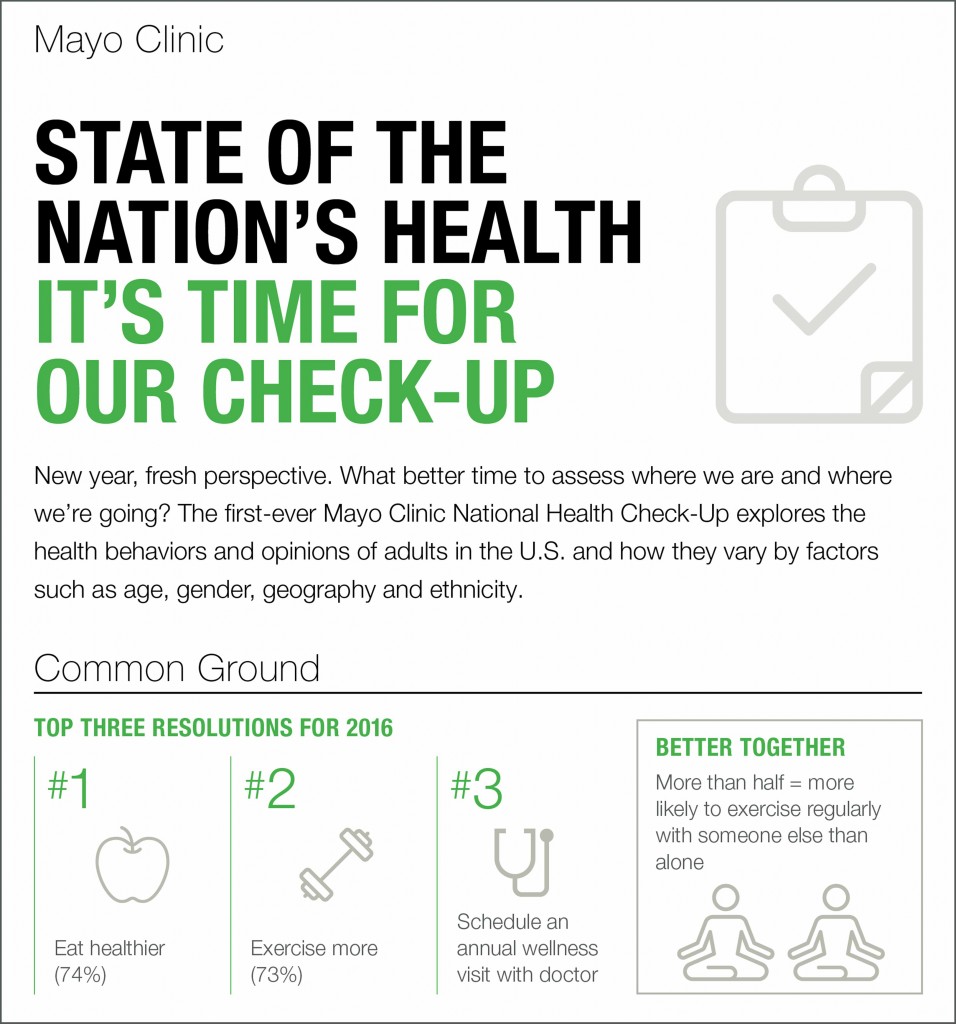-
Featured News
Work Schedule is Top Barrier to Staying Healthy, According to First-Ever Mayo Clinic National Health Check-Up®
According to the first-ever Mayo Clinic National Health Check-Up, most Americans experience barriers to staying healthy, with their work schedule as the leading barrier (22 percent), particularly among men and residents of the Northeast. While work schedule is a top barrier for women, as well, they are significantly more likely than men to cite caring for a child, spouse or parent.
“The Mayo Clinic National Health Check-Up takes a pulse on Americans’ health opinions and behaviors, from barriers to getting healthy to perceptions of aging, to help identify opportunities to educate and empower people to improve their health,” says John T. Wald, M.D., Medical Director for Public Affairs at Mayo Clinic. “In this first survey, we’re also looking at ‘health by the decades’ to uncover differences as we age.”
Watch Dr. John Wald
Survey also reveals optimism about curing cancer, in light of State of the Union imperative
“Eat a Healthier Diet” Tops Resolutions for 2016
When asked about their plans to improve their health in 2016, survey respondents’ top three answers in rank order were “Eat a Healthier Diet” (74 percent), “Exercise More” (73 percent), and “Schedule an Annual Wellness Visit with Your Doctor” (66 percent).
MEDIA CONTACT: Ginger Plumbo, Mayo Clinic Public Affairs, 507-284-5005, Email: newsbureau@mayo.edu
Women were more likely than men to say that they will do something to improve their health in 2016:
- Eat a healthier diet (80 percent vs. 67 percent)
- Schedule an annual wellness visit with their doctor (70 percent vs. 62 percent)
- Get more sleep (67 percent vs. 58 percent)
- See their doctor to discuss symptoms they have been experiencing (62 percent vs. 51 percent)
- Take a nutritional supplement (63 percent vs. 47 percent)
- Schedule a milestone screening (56 percent vs. 26 percent)
View entire Mayo Clinic National Health Check-Up Infographic
“While we know that women tend to be more proactive about their health, it’s concerning that so many fewer men say that they plan to schedule a milestone screening, such as a colonoscopy, in 2016,” said Dr. Wald. “Men need to prioritize screenings as well, because early detection of disease can help improve chances of survival. If they are of average risk, men should begin getting screened for colorectal and prostate cancer at age 50, and sooner if they are of above-average risk.”
People in 30s Least Optimistic About Aging Better than Parents
While most respondents (70 percent) said that they believe they will age better than their parents, the survey identified demographic differences in opinion. People in their 30s were the least optimistic (56 percent) about aging better than their parents, while people in their 80s were the most optimistic (92 percent). Differences were also revealed by household description, with people with children in the household (63 percent) less optimistic than people without children in the household (73 percent).
The survey also explored changes experienced by respondents in the past five years due to aging, identifying that women were significantly more likely than men to say that they had experienced weight gain (46 percent vs. 35 percent) and difficulty sleeping (46 percent vs. 34 percent).
Health-Related Conversations: By the Decades
The Mayo Clinic National Health Check-Up revealed an evolution in health-related conversations with friends as we age:
- 20s – Healthy meal options
- 30s – Maintaining healthy weight, parents’ health issues
- 40s – Maintaining healthy weight, children’s health issues
- 50s – 80s – Their own health issues
Telemedicine is Still Gaining Traction
In spite of the growing access to telemedicine, the survey showed that the majority of respondents (61 percent) would not choose telemedicine over an in-office visit, with the greatest opposition from Midwestern respondents (31 percent answered that “nothing would influence them to choose telemedicine over seeing a doctor in-person”). The most likely champions of telemedicine were people in their 30s (49 percent) and respondents with household income between $75,000 - $100,000 (52 percent).
Optimistic About Curing Chronic Diseases
Respondents demonstrated optimism for curing chronic diseases in the near future:
- In the next 10 years:
- Diabetes (46 percent)
- Cancer (35 percent)
- In the next 20 years:
- ALS (38 percent)
- Alzheimer’s (34 percent)
- Parkinson’s (35 percent)
“At Mayo Clinic, we’re in the midst of a number of exciting clinical trials that validate respondents’ optimism about curing chronic diseases,” said Dr. Wald. “It’s important to note that funding for research will be paramount to achieving these milestones.”
###
About the Poll
The Mayo Clinic National Health Check-Up was conducted through an ORC International Telephone CARAVAN® survey of 1,012 adults (18 years and older) living in the continental United States was conducted in December 2015. To learn more, please visit healthcheckup.mayoclinic.org.
About Mayo Clinic
Mayo Clinic is a nonprofit organization committed to medical research and education, and providing expert, whole-person care to everyone who needs healing. For more information, visit http://www.mayoclinic.org/about-mayo-clinic or https://newsnetwork.mayoclinic.org/.
Related Articles









